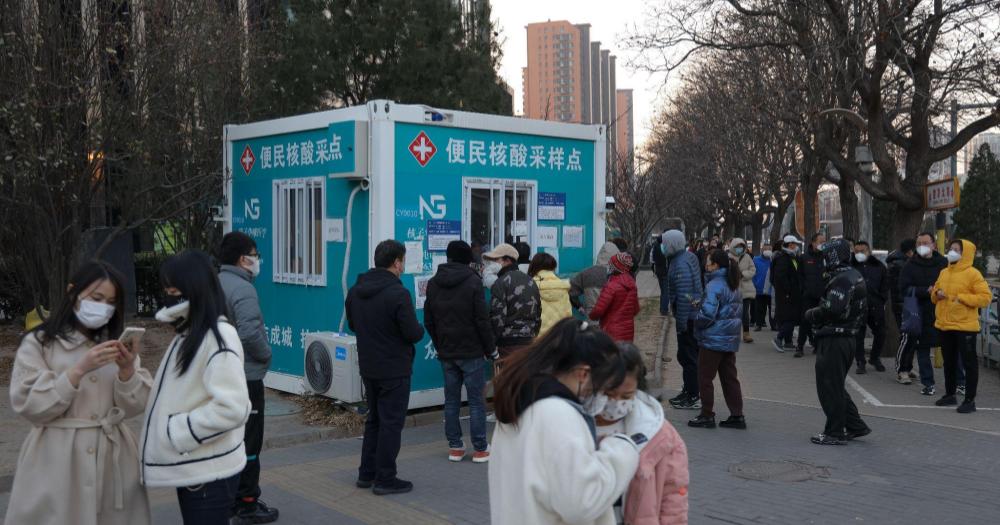Follow us on Telegram for the latest updates: https://t.me/mothershipsg
In the wake of weeks of protest over Covid restrictions, the Chinese government has decided to loosen Covid restrictions in some cities.
Restive Relaxation
According to the Financial Times, Shenzhen, Shanghai, Tianjin, Chengdu, and Chongqing have done away with the need for a negative PCR test to use public transport, while Beijing is allowing home quarantine for those who have tested positive.
Reuters reported that Shanghai and Nanning will similarly relax public transport rules.
Both reported that Covid case numbers have fallen under 32,000, noting that the fall might be a result of a reduction in Covid testing.
There are signs that the reduction on Covid restrictions are not being implemented evenly.
Reuters said that several mass testing locations in major Chinese cities were closing, but a negative Covid test was still required for some activities.
This led to long queues at the remaining testing centres.
The beginning of the end of the beginning
Reuters quotes a note from Goldman Sachs, saying that they did not expect China to abandon its Zero-Covid policy just yet, but that the moves indicated that they were preparing to do so.
The bank also said that China's government was "trying to minimise the economic and social cost of Covid control in the meantime". It expected these "preparations" to last several months.
Making the transition more difficult was China's vaccination plan.
The FT said that for people over the age of 80, only 40% had received the three vaccines doses needed to achieved a "high level of protection" against the Omicrom strain of the Covid virus.
Reuters also reports that China appears to be unwilling to use Western made vaccines to bolster its own vaccines.
United States officials told Reuters that they did not expect China to approve Western vaccines, as a matter of national pride.
But they also said that China's domestically developed vaccines were not as effective as some foreign vaccines, meaning that easing restrictions might relieve lockdown tensions only to see it replaced with a medical emergency.
These are not the results you're looking for
FT also reported that China's President Xi Jinping met with European Council President Charles Michel, with EU officials saying that Xi acknowledged the protests that had taken place across China.
These protests which had taken place in Urumqi, Guangzhou, even Shanghai and Beijing, to name but a few cities, all rallied against the idea of ongoing Covid restrictions.
Xi apparently told Michel that it was mainly frustrated students who were driving the protests, according to South China Morning Post.
The Covid restrictions have dealt a severe blow to China's economic prospects, as lockdowns, travel restrictions, and frustrations continue.
However, the FT warned that even loosening restrictions would not see China's economy recover quickly, as structural issues for the decline have not been dealt with.
They cite the ongoing property crisis, aging population, and decreased productivity, all of which will continue to affect the economy even if Covid restrictions end.
Related stories
Top image via Lintao Zhang/Getty Images
If you like what you read, follow us on Facebook, Instagram, Twitter and Telegram to get the latest updates.
